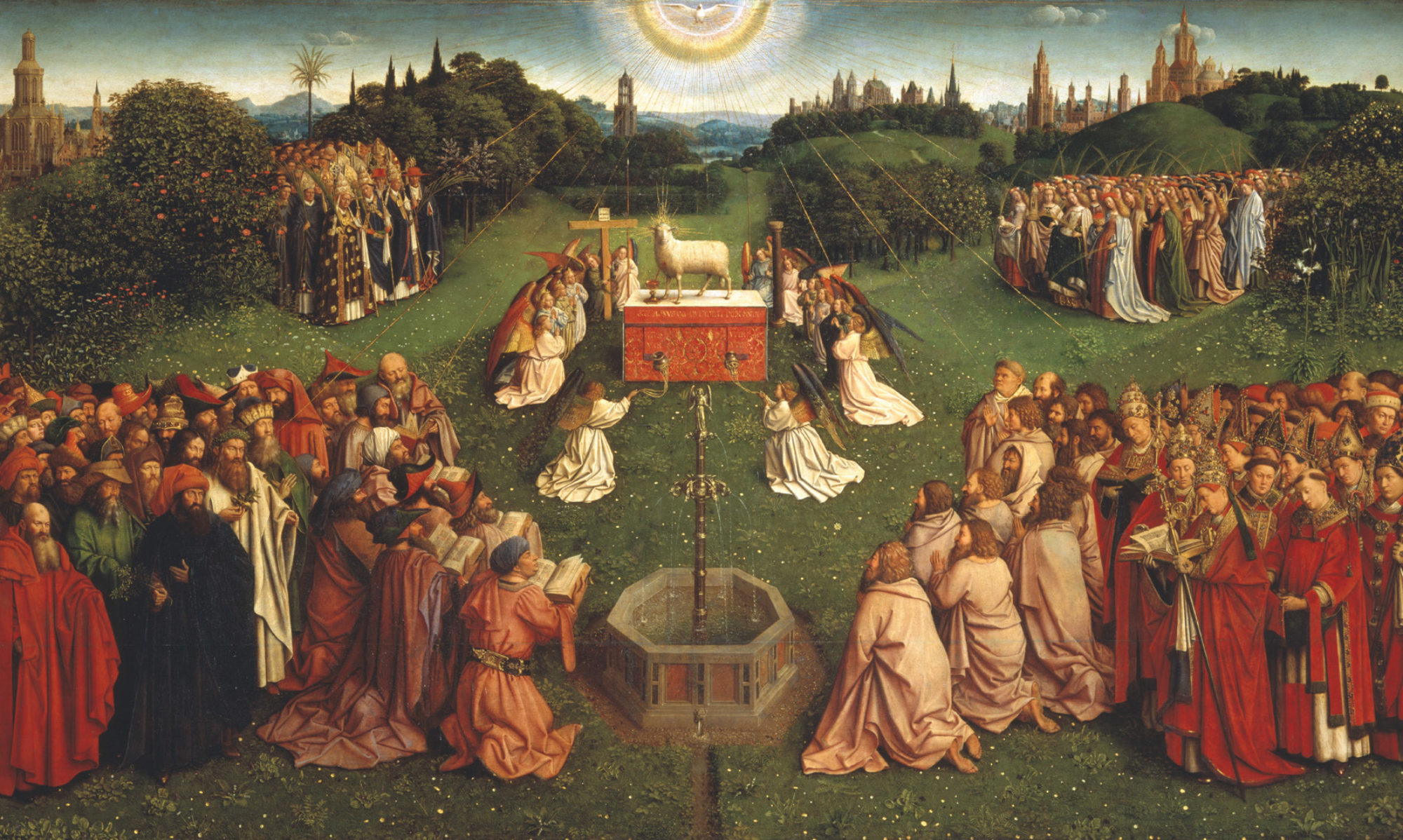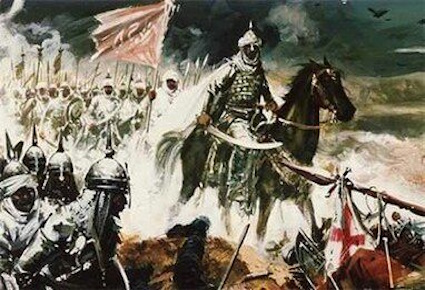In the year 711, Saracen hordes from North Africa swarmed over the Straits of Gibraltar and in to the Visigothic Kingdom of Spain. The leader of the Visigoths, Roderic, marshaled his armies and rode out to confront the Muslim invaders. Unfortunately for Roderic and Visigothic Spain, the Christian armies were disunited and suffered a major defeat at the hands of the Muslims. Roderic was killed, and his defeat ushered in six and a half centuries of Muslim presence in Spain. One of the Muslim commanders during the conquest was called Ṭāriq ibn Ziyād. Prior to crossing the Straits of Gibraltar and going into Spain, Tariq gave a rousing speech to his men. The speech is a classical example of the sorts of ideals that motivated the Islamic conquest—he speaks not of spreading a message of salvation, but of spoils, material delights, and the ravishing of maidens. How different are the delights promised to the Mohammedan jihadist from the beatitude the Christian strives for!
When Tariq had been informed of the approach of the enemy, he rose in the midst of his companions and, after having glorified God in the highest, he spoke to his soldiers thus:
“Oh my warriors, whither would you flee? Behind you is the sea, before you, the enemy. You have left now only the hope of your courage and your constancy. Remember that in this country you are more unfortunate than the orphan seated at the table of the avaricious master. Your enemy is before you, protected by an innumerable army; he has men in abundance, but you, as your only aid, have your own swords, and, as your only chance for life, such chance as you can snatch from the hands of your enemy. If the absolute want to which you are reduced is prolonged ever so little, if you delay to seize immediate success, your good fortune will vanish, and your enemies, whom your very presence has filled with fear, will take courage. Put far from you the disgrace from which you flee in dreams, and attack this monarch who has left his strongly fortified city to meet you. Here is a splendid opportunity to defeat him, if you will consent to expose yourselves freely to death. Do not believe that I desire to incite you to face dangers which I shall refuse to share with you. In the attack I myself will be in the fore, where the chance of life is always least.
“Remember that if you suffer a few moments in patience, you will afterward enjoy supreme delight. Do not imagine that your fate can be separated from mine, and rest assured that if you fall, I shall perish with you, or avenge you. You have heard that in this country there are a large number of ravishingly beautiful Greek maidens, their graceful forms are draped in sumptuous gowns on which gleam pearls, coral, and purest gold, and they live in the palaces of royal kings. The Commander of True Believers, Alwalid, son of Abdalmelik, has chosen you for this attack from among all his Arab warriors; and he promises that you shall become his comrades and shall hold the rank of kings in this country. Such is his confidence in your intrepidity. The one fruit which he desires to obtain from your bravery is that the word of God shall be exalted in this country, and that the true religion shall be established here. The spoils will belong to yourselves.
“Remember that I place myself in the front of this glorious charge which I exhort you to make. At the moment when the two armies meet hand to hand, you will see me, never doubt it, seeking out this Roderick, tyrant of his people, challenging him to combat, if God is willing. If I perish after this, I will have had at least the satisfaction of delivering you, and you will easily find among you an experienced hero, to whom you can confidently give the task of directing you. But should I fall before I reach to Roderick, redouble your ardor, force yourselves to the attack and achieve the conquest of this country, in depriving him of life. With him dead, his soldiers will no longer defy you.”
The selection above is from the History of the Conquest of Spain by the Egyptian Ibn Abd-el-Hakem (d. 870)
Phillip Campbell, “Speech of Tariq to His Saracen Hordes,” Unam Sanctam Catholicam, October 5, 2016. Available online at https://unamsanctamcatholicam.com/2024/07/the-speech-of-tarik-to-his-saracen-hordes

